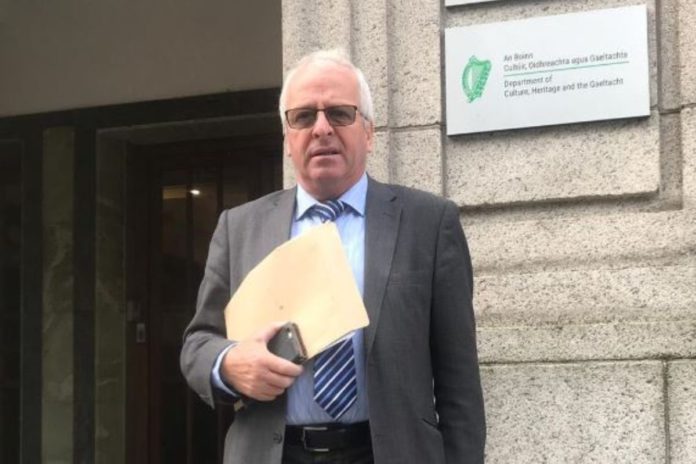Government figures show that the carbon tax will cost the average household €521 this year, rising to €1,225/year by 2030.
However, over the next eight years to 2030, the government tax will cost average households a “staggering” €7,860 and place “an even greater” cost on farmers, smaller businesses, and transport operators.
That is according to the Rural Independent Group of TDs, who introduced a motion in the Dáil yesterday, which, if passed, would see the scrapping of the carbon tax.
The motion also prohibits the government from reintroducing a carbon tax in any form without passing a democratic referendum.
The group has described the tax as “pernicious and job-destroying” that “penalises” every family and hard-working Irish business, particularly trade-exposed and haulage businesses.
It warned that the tax would remove a total of €760 million from people’s pockets this year alone.
Group leader, Mattie Mc Grath, said government will claim that carbon taxes are ring-fenced for climate action policies. However, “we know that that is simply not the case”.
In 2021, he claimed the government raised €652 million in carbon taxes in Ireland but ring-fenced only €130 million.
He stated that this shows that the government is spending a “small” portion of carbon taxes on climate action measures.
Cost to farmers
He said carbon tax “punishes” households, farmers, transport operators, and small businesses for using electricity, home heating oil, gas, petrol, diesel, and other fuels.
“It is also a tax that increases the cost of everyday items, especially essential items,” he added.
“Meanwhile, the average farmer will have to pay over €600 in carbon taxes this year, to operate the family farm.”
“In overall terms, this translates to the government collecting a whopping €64 million in carbon taxes, based on their figures, from farmers’ pockets in 2022. Farmers will not receive even one cent back from the government’s carbon fund this year.”
“If the Fianna Fail, Fine Gael, and Green party government were even half sincere about reducing pressure on energy prices, it would start by scrapping its tax.”
Raise revenues
McGrath believes the main purpose of the government’s carbon tax is to raise revenues, not lower greenhouse gas emissions.
“The taxation policy has failed, as it has not delivered on the promise of cost-effective emissions reductions.”
“Instead, it is causing serious and harmful economic effects that are increasing costs, scaring away investment, and deterring entrepreneurship.”
He said the carbon tax indisputably adds to the cost of living, making households and families pay higher electricity and fuel bills, costing businesses more to operate, and raising the prices of everything else.”
The deputy claimed that every Irish person’s cost of living is unnecessarily higher because of the carbon tax. He said it is a central contributing factor to Ireland’s record cost-of-living increases.”
“The primary purpose of the carbon tax is to act as a disincentive, which can only be effective if members of the public are using more energy than they require and if alternative options are available.”
“However, the tax is not working in Ireland, as many people across all economic sectors are desperately trying to reduce their energy usage and have little to no access to alternatives.”
“Average families would be more than €520 better off this year alone, under our proposals to ‘axe the tax’ rather than under the Fianna Fail, Fine Gael, and Green Party’s carbon tax.”
“Over the next eight years, households would be almost €8,000 better off under our plan to abolish the carbon tax,” he concluded.





